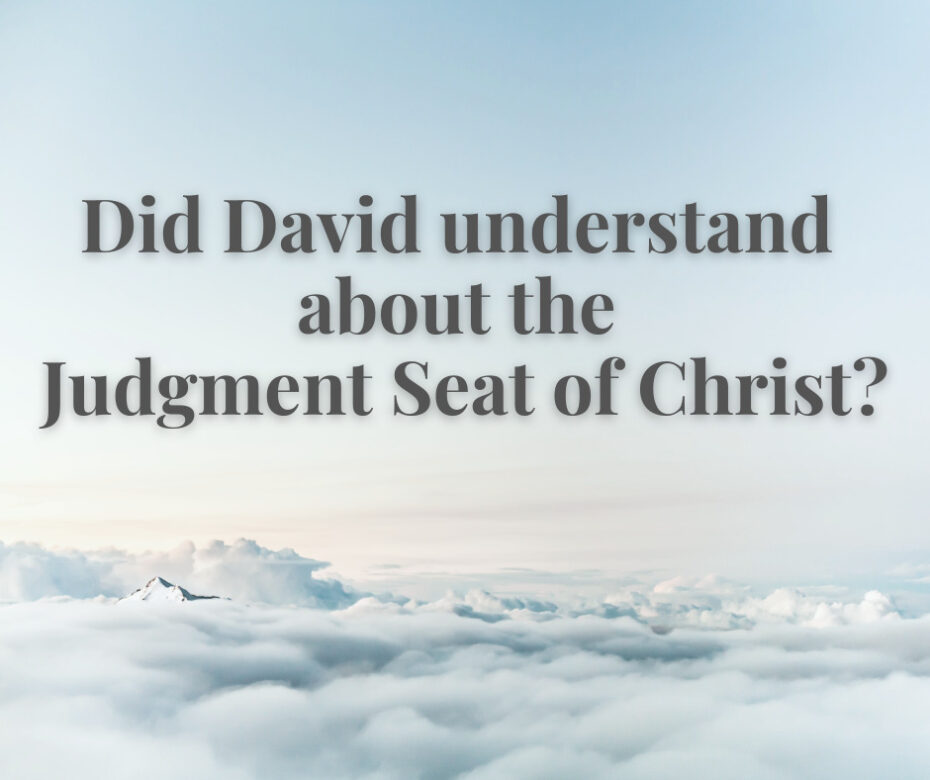I love it when the NT quotes the OT because then I know that the OT passage in question is pointing to what is being taught in the NT. At other times, however, we read things in the OT and wonder whether the original author might have had something more in mind than what is overtly stated. This happens when the verse in question is not quoted in the NT. In these cases, we may simply say that the OT author’s words are an illustration of something in the NT.
I was recently reading Psalm 101. The superscription says that David wrote it. Even though the superscriptions in the psalms were not part of the original, conservative scholars give them a lot of weight. These superscriptions are very old.
So, it is safe to say that David did write this psalm. It talks about how he wants his reign over Israel to be a righteous one. He wanted his own life to please the Lord and he wanted that to impact the decisions he made as a king.
Many have pointed out that his words in the psalm point to the reign of Christ. David often failed in what he wanted to be and do, but the Lord will not. Jesus will, indeed, reign in righteousness (Heb 1:8-9). It seems to me that we can be pretty sure David had this in mind when he wrote Psalm 101. We might even say that David’s words are his way of saying that he was looking forward to the Righteous King’s kingdom.
In the same vein, it surely appears that David saw a time when Christ would reward those who were faithful to Him and punish those who were not. For believers today, that will happen at the Judgment Seat of Christ.
When David speaks of his own rule, he says that he wants to be a king who will destroy those who slander their neighbor (v 5). I doubt very seriously that David meant he would kill or kick out of his kingdom anybody who spoke ill of others. The word destroy would mean some other level of punishment, such as destroying a person’s reputation through public rebuke. This would be appropriate since the slanderer had attempted to destroy the good name of his neighbor.
David also said he wanted to be a king who would not endure the proud man (v 5). As with destroy, we need to determine what he means by endure. We might say that we wouldn’t put up with such actions. In David’s case it would certainly mean that a proud man would not be an honored man in his kingdom.
David then says that the righteous man will dwell with and serve him (v 6). We are certainly correct in interpreting these words as describing a person who will be close to the king and work in some honored capacity. We might say that such a person would be in his cabinet or serve in his administration.
David’s statement that the one who does evil would not dwell within his house or continue in his presence (v 7) is likewise related to the idea of being close–or not–to the king. The bottom line for David is that those who live righteously will be close to him and have positions of authority in his kingdom. Those who act wickedly will be denied those honors.
As David looked forward to the rule of the coming Christ, surely he understood that that was how the Lord was going to reign. Believers who are faithful to the Lord will be closer to Him in His kingdom than those who are not. They will abide, or dwell, with Him in a more intimate way. They will be given positions of authority and privilege in His kingdom administration. Christ will destroy the evil works of believers. Unfaithful believers will not be in positions of authority. They will experience rebuke from Him.
David desired that his kingdom would be like that. He knew that the One whom he wanted to be like would operate that way. I don’t know what he would have called it, but I know he was describing what the Judgment Seat of Christ will be like. He wanted to live and treat others the way he describes in this psalm because he knew his King would evaluate his life in the same way.


